This article was co-authored by Zora Degrandpre, ND. Dr. Zora Degrandpre is a Natural Health Doctor and Licensed Naturopathic Physician in Vancouver, Washington. She is a grant reviewer for the National Institutes of Health and the National Center for Complementary and Alternative Medicine. She received her ND from the National College of Natural Medicine in 2007.
There are 16 references cited in this article, which can be found at the bottom of the page.
wikiHow marks an article as reader-approved once it receives enough positive feedback. This article received 93 testimonials and 81% of readers who voted found it helpful, earning it our reader-approved status.
This article has been viewed 5,800,234 times.
The common cold affects millions of people each year, and having it is no fun. Most people don’t need medical treatments, but a cold can still make you miserable for a few days. There’s no cure for it, so you just have to wait for your body to fight it off on its own. However, there are many things you could do to relieve your symptoms and make yourself more comfortable until the infection heals. Some remedies might even help shorten your symptoms. Try these out for yourself to relieve your cold.
Steps
Relieving Your Symptoms
Since there is no cure for the common cold, most of the home-care tips are completely natural. Doctors recommend the following steps to relieve your symptoms and help your body overcome the virus. While they won’t cure the cold, they’ll make you much more comfortable while you wait for your symptoms to subside. If you still feel uncomfortable, then try taking an over-the-counter pain reliever for further relief.
-
1Stay home and get plenty of rest. While colds are rarely serious, they can still drain your energy. The most important thing to do is take it easy. Try to sleep through the night and take naps throughout the day if you have to. This gives your body the energy it needs to fight the virus.[1]
- Take a day or two off from work or school if you can. This is good for your health and also prevents the virus from spreading.
- If you regularly exercise, take a day or two off. Your body needs that energy to recover. Try lighter exercises like a walk instead.
-
2Drink plenty of fluids to stay hydrated. Dehydration can dry out your nose and throat, and also make it harder for your body to fight the infection. Drink water throughout the day to keep yourself hydrated.[2] In most cases, 6-8 glasses per day is enough, but you might need more if you’re actively fighting an infection.[3]
- If you feel thirsty and your urine is dark yellow, then you’re getting dehydrated. Drink more water to fix that.
- Avoid alcohol and caffeine until you’ve recovered. These can both cause dehydration.
Advertisement -
3Gargle with warm saltwater to ease a sore throat. A saltwater rinse soothes your throat and can also kill bacteria that might be causing irritation. Stir 1/4-1/2 tsp (600-1,200 mg) of salt into a glass of warm water until it dissolves. Then gargle with that water and spit it out into the sink. Continue until the glass is empty. You can repeat this 2-3 times per day.[4]
- Never swallow saltwater.
- Don’t let children under 6 gargle with saltwater. They may not gargle properly and could swallow the water.
-
4Humidify the air so your nose and throat don’t dry out. Dry air can irritate your nasal passages and make your symptoms worse. Try setting up a humidifier to moisten the air and soothe your airways.[5]
- Dry air could also make you more susceptible to colds when you’re healthy, so if you live in a dry environment you could run a humidifier all the time.[6]
-
5Sip warm liquids to soothe your throat and sinuses. Warm liquids can relieve your sore throat and open up your airway. Have tea, soup, or broth throughout the day to soothe your symptoms.[7]
- Warm liquids might also make your nose run because they loosen mucus, so keep some tissues handy.
- Remember to stick with caffeine-free teas or coffee because caffeine could dehydrate you.
-
6Suppress your cough with honey. Honey is a well-known treatment for colds and sore throats. Try adding 1–2 tsp (4.9–9.9 ml) to your tea or a glass of water. You could also eat the honey plain for a similar effect.[8]
- Raw honey is better than processed honey because it’s free of chemicals and contains more nutrients.
- Don’t give honey to children younger than 1. Their immune systems aren’t as strong and they could catch a botulinum infection from honey.
Clearing Congestion
One of the main symptoms of a common cold is congestion, and this is also one of the most annoying. Congestion causes headaches, sinus pressure, and trouble breathing, so getting rid of that is probably one of the first things on your mind for relieving a cold. Luckily, there are a few natural ways you can clear mucus and open your airways. If these don’t work, then an OTC nasal decongestant or antihistamine can work as well.
-
1Take a hot shower or bath and inhale the steam. A hot shower or bath can feel rejuvenating, but it can also help clear your airway. When you take your daily shower or bath, spend a few minutes inhaling the steam. This can loosen mucus and clear your sinuses.[9]
-
2Inhale steam from a pot to draw out mucus. You could also use this method for clearing your airway. Fill a pot with hot water, or heat it on the stove until it’s steaming. Then put your face close to the water and inhale the steam for a few minutes. This should loosen mucus and draw it out.[10]
- If you boil the water, be careful not to burn yourself.
- While some instructions say to put a towel over your head when you inhale steam, this isn’t a good idea. Covering your head concentrates too much heat on your face and could irritate your skin or eyes.
-
3Rinse your sinuses with a neti pot. A neti pot is a device for cleaning out your nasal passages. Fill the pot with saline solution and tilt your head to the side over a sink. Pour the solution into your top nostril and let it flow out of your bottom nostril. This will feel weird at first, but it’ll clean out your sinuses and relieve congestion.[11]
- Only use sterile saline solution in a neti pot, and never use tap water. Non-sterile water could cause an infection.
- Always clean your neti pot after each use.
Trying Natural Remedies
There are many home remedies for cold floating around the internet, but most of these don’t actually have much evidence backing them up. However, there are some herbs and supplements that actually might help and have some science backing them up. Most are safe and you can try them for yourself. They might not heal your cold entirely, but could shorten your symptoms.
-
1Boost your vitamin C as soon as you feel cold symptoms starting. While vitamin C probably can’t do too much once a cold starts, there’s some evidence that it could shorten a cold if you take it right when your symptoms start. As soon as you feel a scratchy throat or runny nose, try boosting your intake to see if this helps you beat the cold faster.[12]
- The average person needs 75-90 mg of vitamin C each day, but boost your intake to 200 mg when you feel a cold coming on.[13]
- Good sources of vitamin C include citrus fruits, bell peppers, orange juice, and leafy green vegetables. You can also get it from a vitamin supplement.
-
2Take echinacea early on to shorten the cold. Echinacea is a type of plant that’s traditionally used to boost immunity and fight illness. Results are mixed, but some people find that it shortens a cold if they take it right when they notice symptoms. You can try it for yourself to see if it works.[14]
- Common echinacea doses are 300 mg for powder or pill forms and 1-2 ml of liquid. Follow the dosing instructions on the product you use.[15]
-
3Ask your doctor before taking zinc supplements. Zinc does have antiviral properties, but could also have side effects. High zinc doses could cause nausea and diarrhea. It’s best to ask your doctor if taking zinc is safe before you try it as a remedy.[16]
- Zinc usually comes in lozenge or liquid form to kill virus cells in your throat.
- Zinc nasal sprays are associated with serious side effects like permanent loss of smell, so don’t use these products.
-
4Try elderberry extract to shorten your symptoms. Elderberry shows some success in boosting immunity and helping your body fight infections faster. Studies show that elderberry can help cold and flu symptoms clear up a few days sooner than they would naturally. Try taking 15 ml of elderberry liquid when you start feeling sick to see if it helps.[17]
- You could also make elderberry tea for a similar effect.
-
5See if garlic helps prevent colds. Garlic does have antibacterial and antiviral properties, making it a common home remedy for illnesses like a cold. However, research doesn’t confirm most of these claims. If you’d like to try it, you can increase your garlic intake and see if it helps you avoid colds.[18]
- It’s safe to eat 2-5 g of fresh garlic per day, equal to about 3-4 cloves.[19]
Medical Takeaways
While there aren’t any natural treatments that can actually cure a cold, there are many that can relieve your symptoms and make you feel much better. Give these a try to help yourself recover. If you still don’t feel any relief, then OTC pain relievers and decongestants can be a big help as well. Within a week, you should be feeling like your old self again.
Expert Q&A
Did you know you can get expert answers for this article?
Unlock expert answers by supporting wikiHow
-
QuestionHow do you get rid of a cold without medicine?
 David Nazarian, MDDr. David Nazarian is a board certified Internal Medicine Physician and the Owner of My Concierge MD, a medical practice in Beverly Hills California, specializing in concierge medicine, executive health and integrative medicine. Dr. Nazarian specializes in comprehensive physical examinations, IV Vitamin therapies, hormone replacement therapy, weight loss, platelet rich plasma therapies. He has over 16 years of medical training and facilitation and is a Diplomate of the American Board of Internal Medicine. He completed his B.S. in Psychology and Biology from the University of California, Los Angeles, his M.D. from the Sackler School of Medicine, and a residency at Huntington Memorial Hospital, an affiliate of the University of Southern California.
David Nazarian, MDDr. David Nazarian is a board certified Internal Medicine Physician and the Owner of My Concierge MD, a medical practice in Beverly Hills California, specializing in concierge medicine, executive health and integrative medicine. Dr. Nazarian specializes in comprehensive physical examinations, IV Vitamin therapies, hormone replacement therapy, weight loss, platelet rich plasma therapies. He has over 16 years of medical training and facilitation and is a Diplomate of the American Board of Internal Medicine. He completed his B.S. in Psychology and Biology from the University of California, Los Angeles, his M.D. from the Sackler School of Medicine, and a residency at Huntington Memorial Hospital, an affiliate of the University of Southern California.
Diplomate, American Board of Internal Medicine
-
QuestionWhat other things can help a cold?
 Luba Lee, FNP-BC, MSLuba Lee, FNP-BC is a Board-Certified Family Nurse Practitioner (FNP) and educator in Tennessee with over a decade of clinical experience. Luba has certifications in Pediatric Advanced Life Support (PALS), Emergency Medicine, Advanced Cardiac Life Support (ACLS), Team Building, and Critical Care Nursing. She received her Master of Science in Nursing (MSN) from the University of Tennessee in 2006.
Luba Lee, FNP-BC, MSLuba Lee, FNP-BC is a Board-Certified Family Nurse Practitioner (FNP) and educator in Tennessee with over a decade of clinical experience. Luba has certifications in Pediatric Advanced Life Support (PALS), Emergency Medicine, Advanced Cardiac Life Support (ACLS), Team Building, and Critical Care Nursing. She received her Master of Science in Nursing (MSN) from the University of Tennessee in 2006.
Board-Certified Family Nurse Practitioner Use feet hydrotherapy. Soaking your feet in hot water can speed up clearing up your cold. As soon as you feel a cold coming on, soak your feet in hot water for 10 - 15 minutes. You can add few eucalyptus drops into the soak. Afterwards, dry your feet, put on some dry, warm socks, get a warm drink, and head to bed.
Use feet hydrotherapy. Soaking your feet in hot water can speed up clearing up your cold. As soon as you feel a cold coming on, soak your feet in hot water for 10 - 15 minutes. You can add few eucalyptus drops into the soak. Afterwards, dry your feet, put on some dry, warm socks, get a warm drink, and head to bed. -
QuestionHow do you get your nose unclogged without using the neti pot?
 Luba Lee, FNP-BC, MSLuba Lee, FNP-BC is a Board-Certified Family Nurse Practitioner (FNP) and educator in Tennessee with over a decade of clinical experience. Luba has certifications in Pediatric Advanced Life Support (PALS), Emergency Medicine, Advanced Cardiac Life Support (ACLS), Team Building, and Critical Care Nursing. She received her Master of Science in Nursing (MSN) from the University of Tennessee in 2006.
Luba Lee, FNP-BC, MSLuba Lee, FNP-BC is a Board-Certified Family Nurse Practitioner (FNP) and educator in Tennessee with over a decade of clinical experience. Luba has certifications in Pediatric Advanced Life Support (PALS), Emergency Medicine, Advanced Cardiac Life Support (ACLS), Team Building, and Critical Care Nursing. She received her Master of Science in Nursing (MSN) from the University of Tennessee in 2006.
Board-Certified Family Nurse Practitioner
Warnings
- See a doctor if your symptoms don't improve in seven to 10 days, or you are experiencing symptoms that include high fever (above 102 °F or 38.9 °C), nasal discharge that is not clear, development of a productive cough (cough with phlegm), or skin rashes.⧼thumbs_response⧽
References
- ↑ https://my.clevelandclinic.org/health/diseases/12342-common-cold/management-and-treatment
- ↑ https://my.clevelandclinic.org/health/diseases/12342-common-cold/management-and-treatment
- ↑ https://intermountainhealthcare.org/blogs/topics/live-well/2016/11/the-truth-about-feeding-a-cold-and-starving-a-fever/
- ↑ https://health.clevelandclinic.org/how-to-get-rid-of-a-cold/
- ↑ https://www.mayoclinic.org/diseases-conditions/common-cold/diagnosis-treatment/drc-20351611
- ↑ https://www.hopkinsmedicine.org/health/conditions-and-diseases/common-cold
- ↑ https://www.mayoclinic.org/diseases-conditions/common-cold/in-depth/cold-remedies/art-20046403
- ↑ https://www.mayoclinic.org/diseases-conditions/common-cold/expert-answers/honey/faq-20058031
- ↑ https://kidshealth.org/en/teens/colds.html
- ↑ https://www.hopkinsmedicine.org/health/conditions-and-diseases/common-cold
- ↑ https://www.nhsinform.scot/illnesses-and-conditions/infections-and-poisoning/common-cold
- ↑ https://www.nhsinform.scot/illnesses-and-conditions/infections-and-poisoning/common-cold
- ↑ https://www.health.harvard.edu/cold-and-flu/can-vitamin-c-prevent-a-cold
- ↑ https://www.ncbi.nlm.nih.gov/pmc/articles/PMC4068831/
- ↑ https://www.drugs.com/npp/echinacea.html
- ↑ https://www.mayoclinic.org/diseases-conditions/common-cold/expert-answers/zinc-for-colds/faq-20057769
- ↑ https://health.clevelandclinic.org/is-elderberry-really-an-effective-cold-and-flu-cure/
- ↑ https://pubmed.ncbi.nlm.nih.gov/22419312/
- ↑ https://www.drugs.com/npp/garlic.html
About This Article
To get rid of a cold naturally, drink warm fluids like tea and broth, since warm fluids will clear up your congestion so you feel better. You can also try eating garlic or raw honey, which both have anti-viral properties and may help boost your immune system. If you have a sore throat, gargle with salt water every few hours to relieve the pain. Remember to drink plenty of water and to get as much rest as possible so your cold goes away faster. For more natural home remedies to get rid of a cold, like elderberry extract and eucalyptus, read the article!
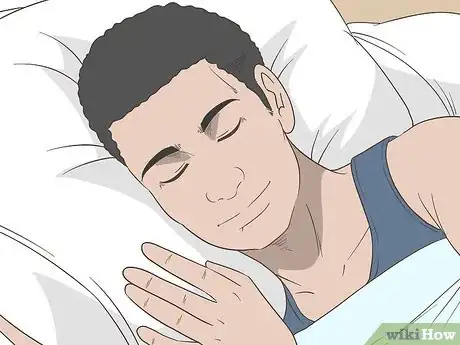

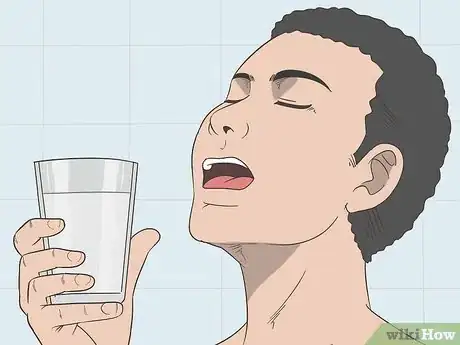
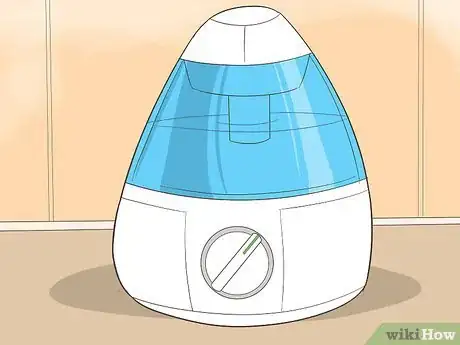
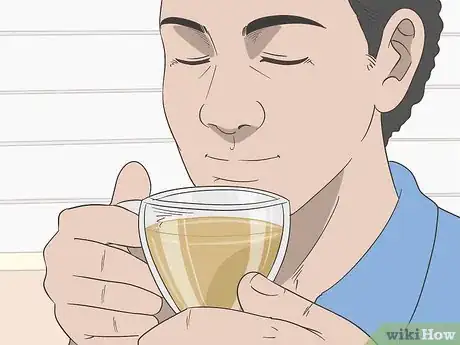

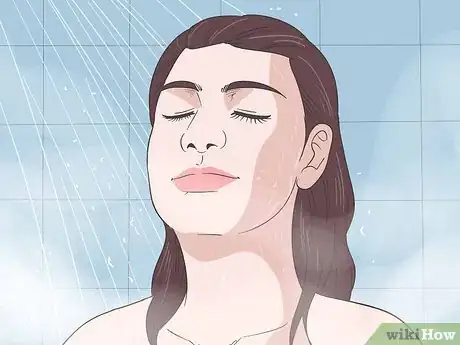

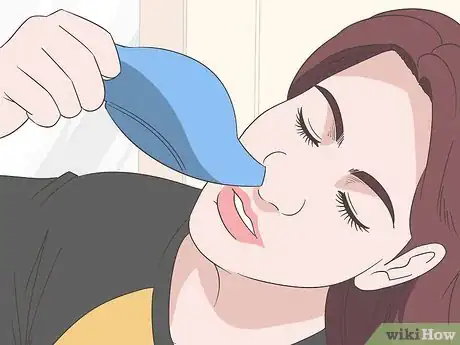

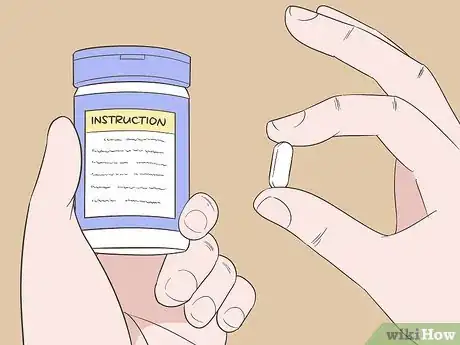
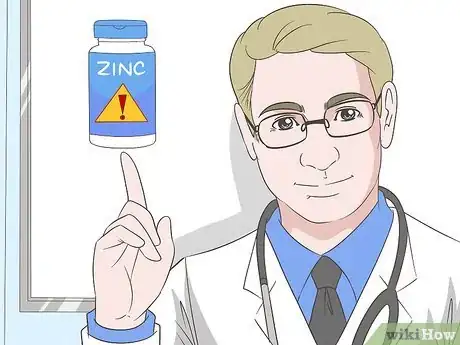
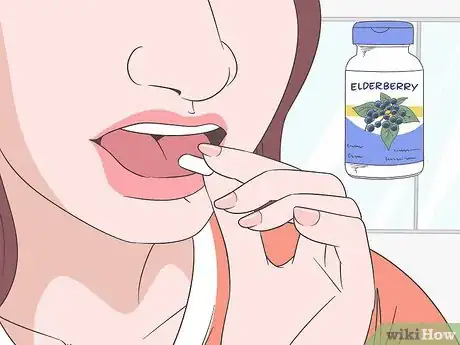
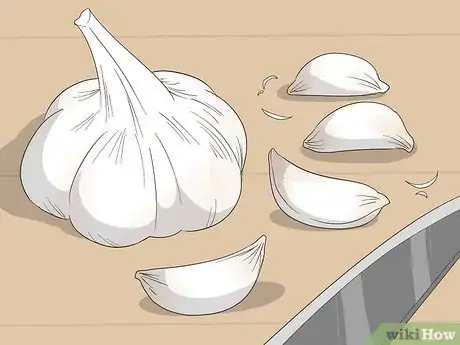
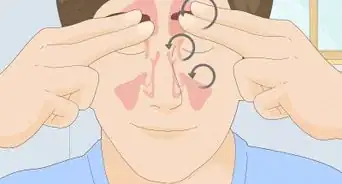

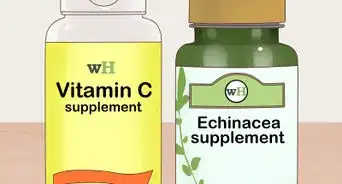
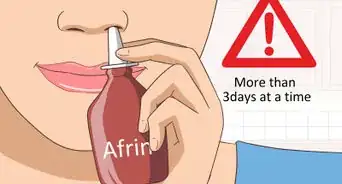


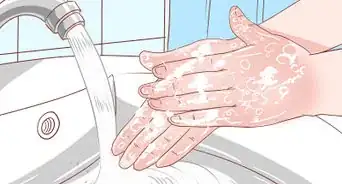
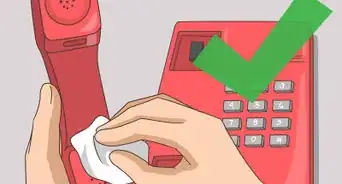
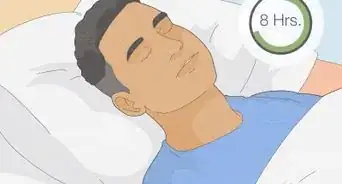

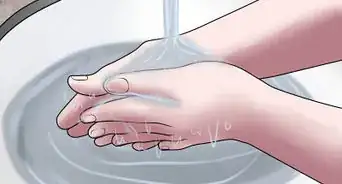
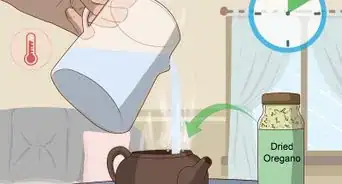
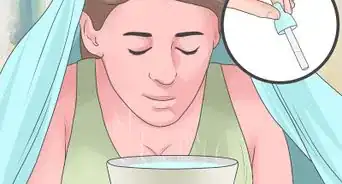
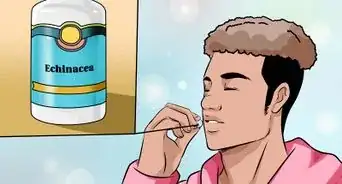










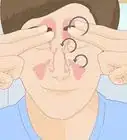

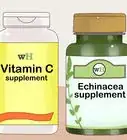
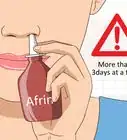



































Medical Disclaimer
The content of this article is not intended to be a substitute for professional medical advice, examination, diagnosis, or treatment. You should always contact your doctor or other qualified healthcare professional before starting, changing, or stopping any kind of health treatment.
Read More...